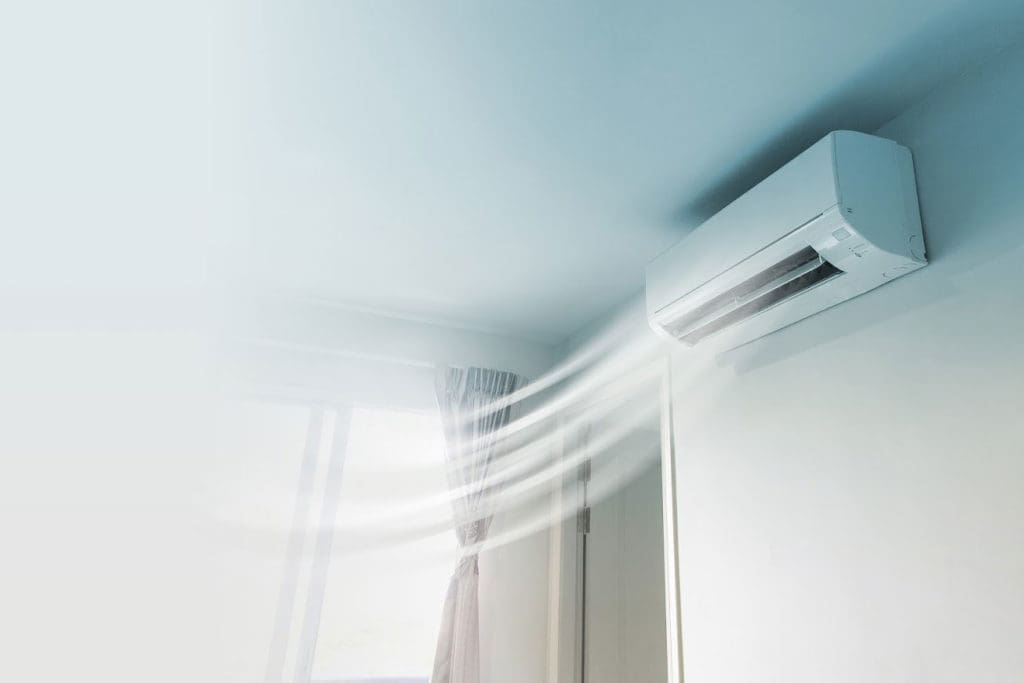
Even if you love Colorado’s climate and environment, you may still feel miserable if you can’t control the humidity in your home. Ideally, indoor humidity levels should hover between 30 percent and 50 percent, not just to keep occupants comfortable but also to discourage structural issues such as rot and mold development.
Central air conditioning systems pull moisture out of the air by cooling it into liquid form for drainage out of the home. However, some air conditioners can suffer from problems or conditions that interfere with this process. If you can’t achieve comfortable humidity levels from your HVAC system, investigate the following five possible reasons.
1. Low Refrigerant Levels
Air conditioners rely on refrigerants to cool surrounding air. This low-pressure gas turns into hot, pressurized liquid as it absorbs heat. The heated refrigerant then moves to the outdoor compressor unit to vent the accumulated heat and return to gaseous form. Meanwhile, a fan blows the chilled air through your home’s air vents.
Unfortunately, refrigerant gas often escapes through tiny leaks in the system. Over time, this leakage causes the refrigerant level to drop, reducing your HVAC system’s ability to draw moisture out of the air. The results include inadequate cooling and moist, sticky air. Low refrigerant can also strain, overheat, and destroy your compressor.
Another odd side effect of low refrigerant involves the evaporator coils that contain it. Instead of simply getting cold and chilling the air, evaporator coils containing little refrigerant can freeze over and stay frozen instead of heating up again. This frozen state makes the coils incapable of pulling any more moisture from the air.
Topping off your air conditioner’s refrigerant may sound like a do-it-yourself job. However, the refrigerant has toxic, hazardous properties that call for professional handling. Additionally, you need your HVAC team to find and seal the leaks in the system before recharging the refrigerant.
2. Dirty Coils
Evaporator and condenser coils can fail for other reasons than low refrigerant. Anything that prevents their surfaces from reacting properly to outside conditions can interfere with their ability to remove humidity and cool your home. One prime example involves dirt collecting on either indoor or outdoor coils.
Regular maintenance inspections and service can help identify and correct this issue before it affects your HVAC system’s efficiency. Your service technicians will remove any protective panels to access the indoor or outdoor coils. They can then use compressed air or commercial cleaning products to remove the dirt.
3. Ventilation Issues
Proper airflow through a home helps tame humidity. Your HVAC system’s fan settings can push air through the system’s ducts and vents whether the system actively cools the air or not, reducing the air pressure even as it prevents stale, humid air from building up. When your ventilation fails, so does your moisture control.
Anything that keeps air from moving through your air conditioning vents can make your home feel muggier. Start by examining the air filter and changing it if you see dirt. If that quick remedy doesn’t seem to improve airflow, your HVAC service provider may need to check the system for leaky ducts or a malfunctioning exhaust fan.
4. Home Structural Challenges
Gaps and leaks that affect your air conditioner’s humidity control don’t necessarily originate in the air conditioning system itself. Your home itself plays a major role in air conditioning efficiency by offering a closed environment for chilled, dried air. Any breach to the outside world can equalize the indoor and outdoor humidity levels.
If you suspect that tiny air leaks in various parts of your home may contribute to your humidity issues, ask your HVAC service company whether you need a home energy audit. These evaluations can locate any air leaks that need sealing, permitting your HVAC system to dry the air more effectively without overworking itself.
The more moisture a home contains, the more difficulty any HVAC system will have removing it. In addition to that home energy audit, give serious thought to scheduling a plumbing inspection. You may have a water leak somewhere that needs addressing to lower the home’s baseline humidity level.
5. An Underpowered Air Conditioner
Just as too much humidity can overpower an air conditioner, an underpowered air conditioner can prove ineffective at controlling humidity. If the builder or previous owner installed an HVAC unit too small for its surroundings, that HVAC unit simply can’t cool and dry enough air to make much of a difference in your comfort.
Ask your HVAC service technicians whether you have an air conditioner of the right size, power, and rated capacity for your home. A switch to a larger unit could give you the humidity control you need while also protecting your home’s wood and other materials against sustained, constant moisture exposure, making it a sound investment.
Steele Brothers Heating, Inc. can look into your humidity issues, determine the underlying cause or causes of them, recommend the necessary corrections, and take care of any HVAC repairs or modifications you might need. Contact us today to describe your situation and request our services.
